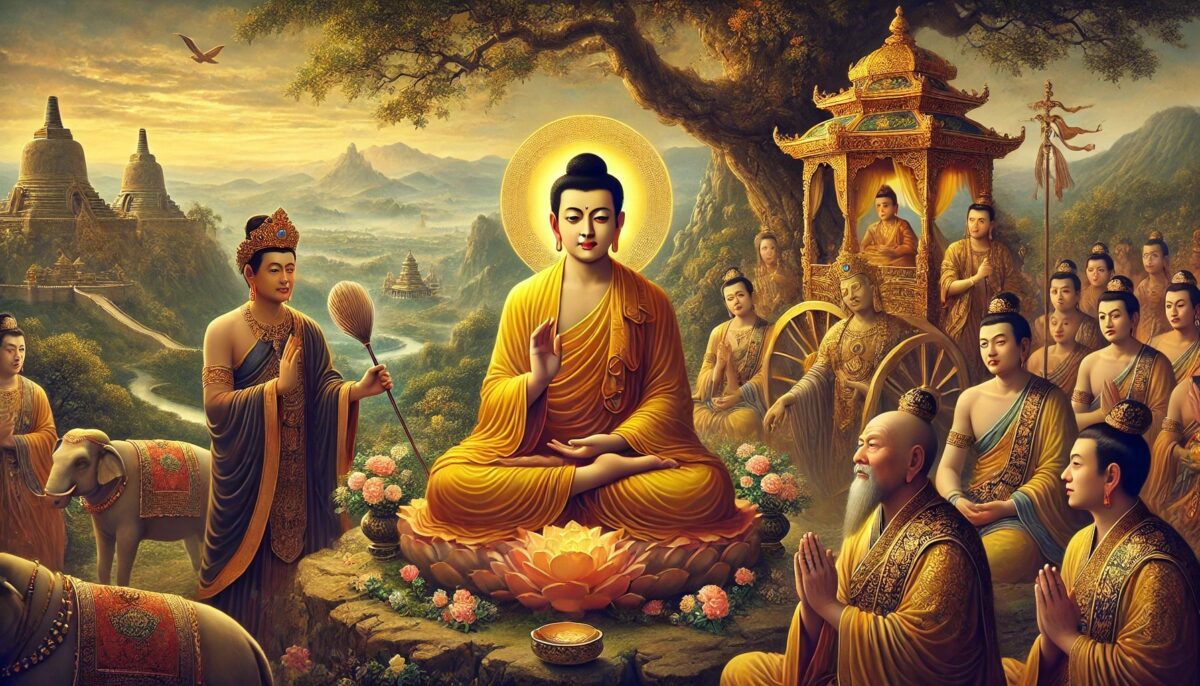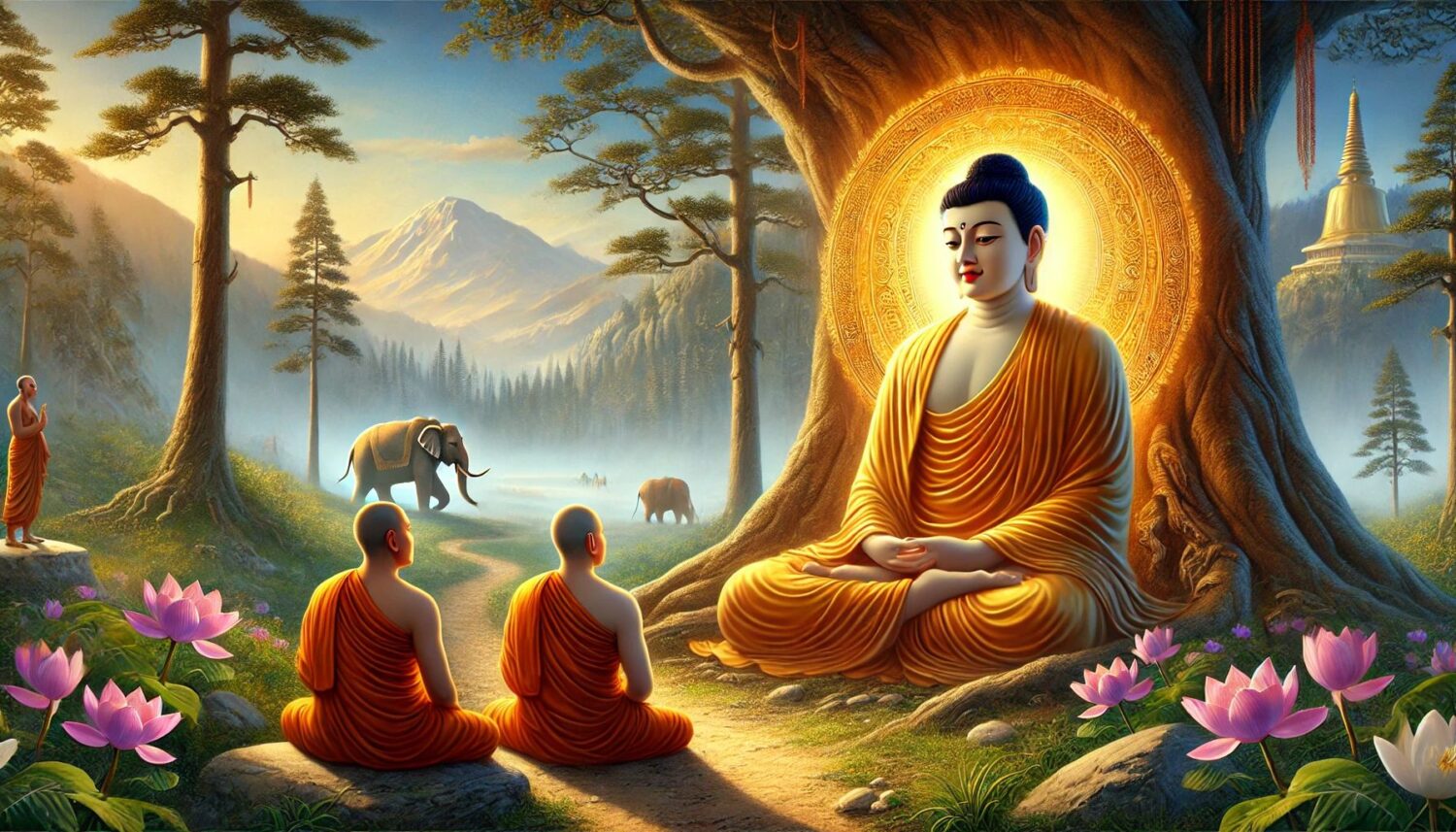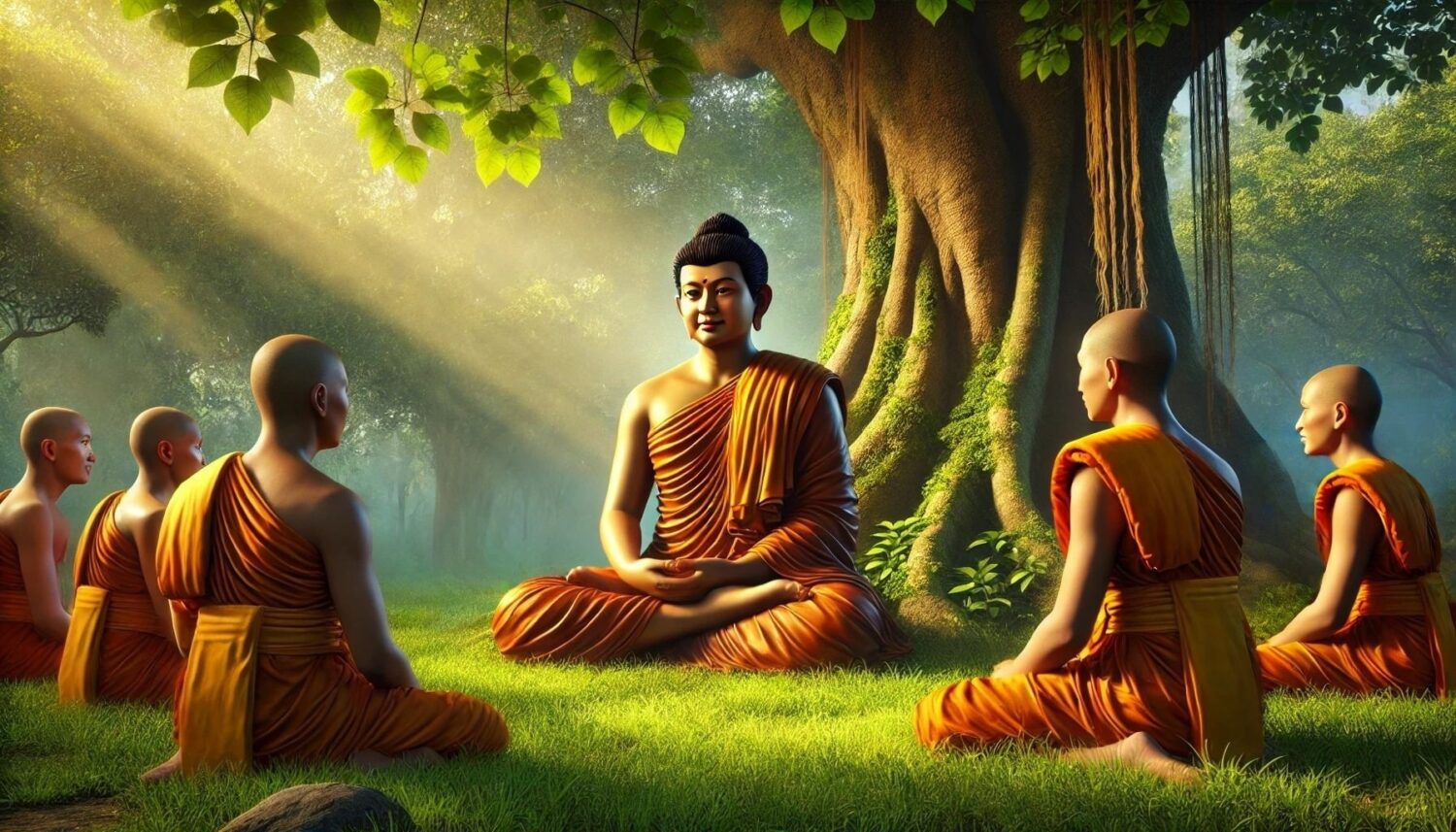
Date: 12/14/2024 12/15/2024
Location: Star Lake Meditation Center
Teacher: Otto Huang
Dharma Talk
The Seven Conditions of Non-Decline for Prosperity and National Defense
More than 2,500 years ago, in the southern bank of the Ganges River in India, there was a large country called the Kingdom of Magadha.
In the later years of Buddha’s life, the king of Magadha, named Ajātasattu, was in conflict with the Vajji people, his northern neighbors. He often told his ministers that the Vajji people, with their large population and growing power, were becoming increasingly defiant and posed a significant threat. He expressed a desire to find an opportunity to eliminate them completely.
A year before Buddha’s passing, he came to the capital of Magadha, Rajagaha, and stayed in the Vulture Peak near the outskirts of the city.
Upon hearing that Buddha was residing nearby on Vulture Peak, King Ajātasattu sent his close minister, named Vassakāra, to consult Buddha regarding his plans to attack the Vajji Kingdom. The king trusted Buddha as a sage who spoke the truth and would provide an honest answer.
Minister Vassakāra, following his orders, prepared the best carriage and brought five hundred attendants, arriving ceremoniously at Vulture Peak. When they reached the end of the road, Vassakāra disembarked and walked to Buddha’s resting place. After formal greetings, he conveyed the king’s regards and explained his purpose for visiting.
Buddha then told Minister Vassakāra:
“Vassakāra! In the past, I visited the Vajji Kingdom and taught them the ‘Seven Conditions of Non-Decline.’ If the Vajji people practice these seven conditions, they will surely be victorious.”
Then Buddha turned to Venerable Ananda, who was standing by with a fan, and in a series of questions and answers, Ananda confirmed that the Vajji people indeed practiced the following seven “Conditions of Non-Decline”:
1. They regularly gather for assemblies.
2. In meetings, they work together with unity on public affairs.
3. They follow established laws and do not change them lightly.
4. They do not violate women.
5. They honor and care for the elderly, valuing their experience.
6. They diligently maintain existing temples.
7. They support and provide for the Arahants (enlightened ones).
Thus, Buddha told Minister Vassakāra that those who gather regularly for assemblies shall thrive; those who work together with unity shall thrive; those who adhere to established laws shall thrive; those who refrain from violating women shall thrive; those who value the experience of elders shall thrive; those who respect religious faith shall thrive; and those who support the Arahants shall thrive.
Hearing Buddha’s response, Minister Vassakāra sighed and said:
“Ah, Gautama! Just one of these Conditions of Non-Decline would be enough to predict the Vajji people’s strength and endurance, let alone all seven! Ah, Gautama!
If King Magadha does not use divisive means in addition to war and diplomacy, he will not be able to conquer the Vajji people. I must leave now, ah, Gautama! I have many duties and must report back.”

